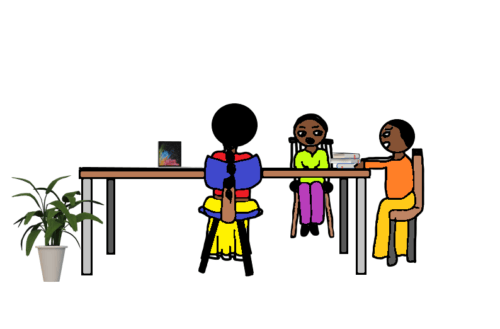Today we begin a new series, ‘Developing Writing Skills in Young Children.’
Here’s a common query that comes my way:
“My child is three years old and in the nursery. I am extremely worried about her as she does not show any interest in writing. She prefers to scribble, but her teacher has already started letter writing. I notice that she has a good pencil grip, but she refuses to sit with me when she knows that she has to practice writing. I am so worried. Please suggest something so that I can encourage her to write.“
Does that sound familiar? Could you have written this or someone you know?
If you are a parent of a young child, you’ve probably grappled with how to encourage your little one to write. The calls from the teacher about incomplete classwork, the pile of writing assignments for homework, and your child’s refusal to write increase your stress levels. What will it be like for the next twelve to fourteen years?
Writing is a form of communication…
There is no magic bullet to resolve this because many factors contribute to how children write. On the other hand, parents can educate themselves on developmentally appropriate motor and language skills necessary for writing and provide child-centric opportunities to practice writing. Even as our children use computers for more and more of their academic work, they still need to learn to write. Therefore, we must ensure that our children have the necessary skills to succeed in school.
What is writing? Is it the ability to trace or copy something from a piece of paper or the board, or is there more to it?
Writing is a form of communication, just like speaking. There is a specific purpose to writing-it is a means to express your thoughts and ideas. Children don’t just sit with paper and pencil one fine day and start writing because it is not a single task. They must go through many stages of development in different areas to become a writer. Each stage builds on the previous one, and children need time to master each step.
The need to express is natural. Children begin by crying to express their needs and to seek comfort. As they grow and become more social, their ways of expression change. They vocalize, point, gesture, say words and phrases, and then complete sentences. Children’s language skills develop along with their communication skills. They share jokes with friends and give long explanations on why they must have a toy or why they dislike a vegetable. Around this time, they connect that the sounds they speak are also represented in print. When parents read to the children or expose them to printed words in their environment, they begin to understand the alphabet system, whether in English or their native tongue.
Writing is a part of this continuity. Here, children must learn how to form the shapes that make up the letters that correspond to the sounds in words. The scribbles on the walls and those strange squiggles on paper you see around your home are evidence of emergent writing skills. From here, they go through stages where they form letter-like shapes and write one or two letters on a page. When they write their name, Children understand that the letters must follow a sequence to make meaningful words. They move on to writing words or phrases with invented spelling, leading to formal writing.
So, why do children who actively engage in age-appropriate writing activities decide that they won’t sit down to write with the parent or the teacher? It becomes a chore when we exclude the purpose behind writing and limit our expectations to tracing, copying, or writing only about topics related to academic requirements. Children see writing as a tedious activity that must be endured at best or resisted at worst.
As I mentioned earlier, children do not start writing independently without any preparations, even those who appear to do so on their own. Children must see how the printed word is used to give meaning. How do we do that? When adults read to children, they learn that the words in the book tell a story or share information. Suppose the adults model writing for communication, such as writing letters, greeting cards, making lists, or preparing work-related documents. In that case, children learn that they too can use writing to express themselves. When adults are deliberate and purposeful in choosing developmentally appropriate activities and take into account children’s interests, it motivates children to learn to write.
What skills should children have to develop writing skills?
In a typical classroom writing session, children must be able to
- sit for a while, which means they must have good core stability and attention skills
- have good pencil grip and fluid wrist movements, i.e., fine motor skills
- understand the alphabetic principle, i.e., the relationship between sounds and letters
Next week we will look at these areas in greater detail.





